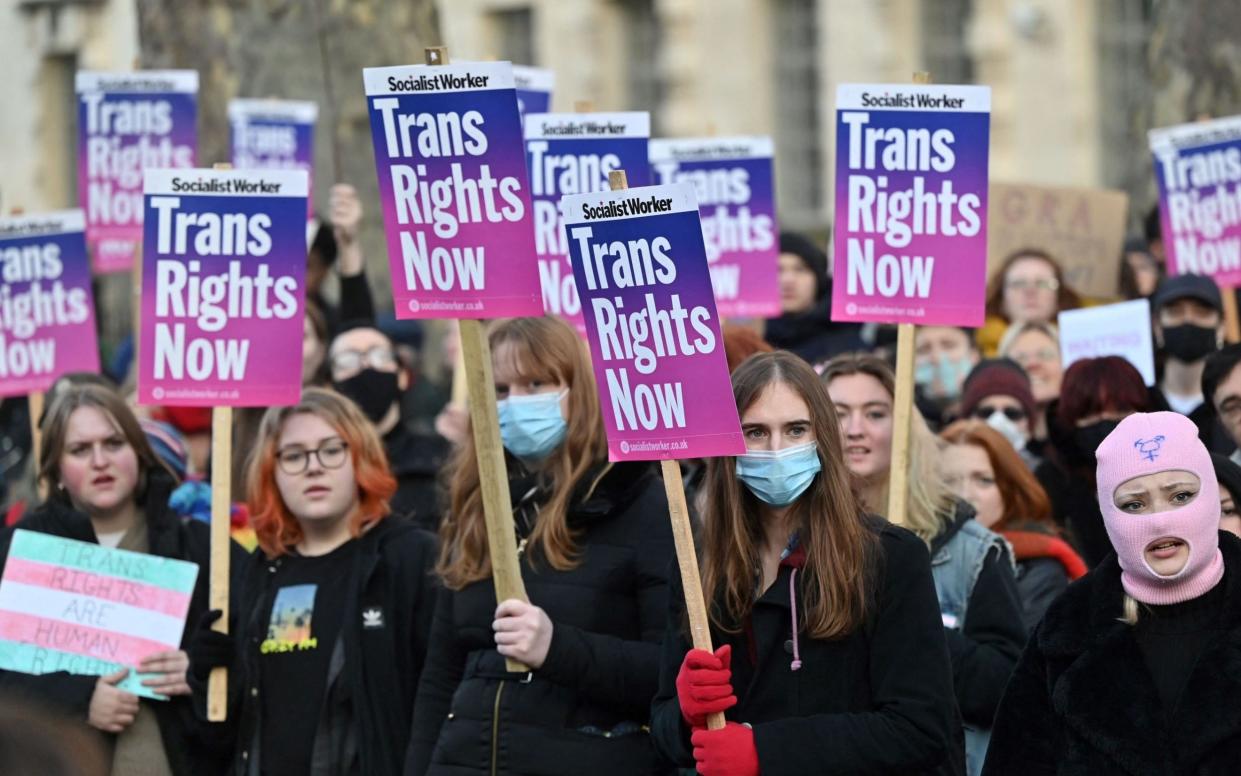Labour vows it will make it easier to change gender in policy switch

Labour is in fresh disarray over trans rights as it resurrects a pledge to make it easier for people to legally change their gender.
The party on Friday vowed to press ahead with “modernising” the Gender Recognition Act [GRA], a week after Sir Keir Starmer suggested the plans were on ice.
Tory MPs described the latest change in position as “worrying” and said it could boost the Conservatives' chances of retaining seats at the next election.
Labour reaffirmed its pledge to “modernise the outdated Gender Recognition Act” in a message to mark International Transgender Day of Visibility.
In a social media post, it said: “The Labour Party will always be committed to building a society where the trans community feel safe and respected.”
The party’s leadership has been plagued by accusations of flip-flopping and ambiguity over its stance on whether to make it easier for people to change gender.
Backed away from pledge
Sir Keir announced in a 2021 interview that Labour under his leadership was “committed to updating the GRA to introduce self-declaration for trans people”.
He began to back away from the pledge in January2023 amid controversy over Scottish proposals to introduce self-ID without a medical certification.
The Labour leader said he had “concerns” over Nicola Sturgeon’s plans and that the age limit on legally changing gender should not be lowered to 16.
In a change of position he explained his party’s new policy was to “modernise the legislation to take out the indignities” involved in transitioning.
In February Ms Sturgeon resigned as First Minister, with the backlash to her gender reform plans cited as having fatally undermined her leadership.
Sir Keir appeared to signal a further climbdown last week when he said that lessons had to be learnt from what happened in Scotland.
“The lesson I take from that is that if you’re going to make reforms, you have to carry the public with you,” he said, when asked about it by reporters.
“I think that’s a very important message, and I think that’s why it’s clear that in Scotland there should be a reset of the situation.”
The remarks were widely seen as an indication that Labour had effectively put plans for reform of the GRA on the backburner.
Tory MPs accused Sir Keir of “flip-flopping” over the issue and suggested his indecisiveness meant he was not fit to lead the country.
“In the light of the experience of Scotland you would think they might wish to appeal to the majority of UK citizens, but apparently not,” said Craig Mackinlay, the Tory MP for South Thanet.
“They are still on track to implement these worrying self-identification proposals which I’m sure will not sell well in the Red Wall heartlands that they need to win.
“They are exposing themselves as a metropolitan elite so far detached from normal people. One wonders whether they are fit to be anywhere close to Government.”
Marco Longhi, the Tory MP for Dudley North, said: “When the wind stops blowing, that’s when Starmer will be in trouble. A weather vane that doesn’t know which way to point.
“Sir Keir has self-identified as a man of principle. A man with values. But ask him what a woman is and he’ll give you a different answer each time.
“This is what his Labour Party is all about: zero substance and no principles. He and Sturgeon were like two peas in a pod and now that it’s all collapsed in Scotland Starmer wants to change his tune again.
“Nobody can ever trust Starmer or Labour on anything.”
Calls to ‘discipline’ Rosie Duffield
It came as Sir Keir faced calls from within his party to “discipline” Rosie Duffield, the Labour MP for Canterbury, who is an outspoken women’s rights campaigner.
Nadia Whittome, the Labour MP for Nottingham East, also insisted that the party had “got a policy of de-medicalising the Gender Recognition Act”.
The Jeremy Corbyn ally appeared on a podcast run by What The Trans, a group which co-signed a letter to Sir Keir criticising his stance.
She was asked whether Ms Duffield, who has spoken against proposals to allow self-ID, would “fall on the wrong side of” a definition of transphobia.
“Disciplinary action needs to be taken against people who consistently say transphobic things and behave in a transphobic way,” Ms Whittome said.
“That should apply no matter what your position or role in the party is.”

 Yahoo News
Yahoo News 
